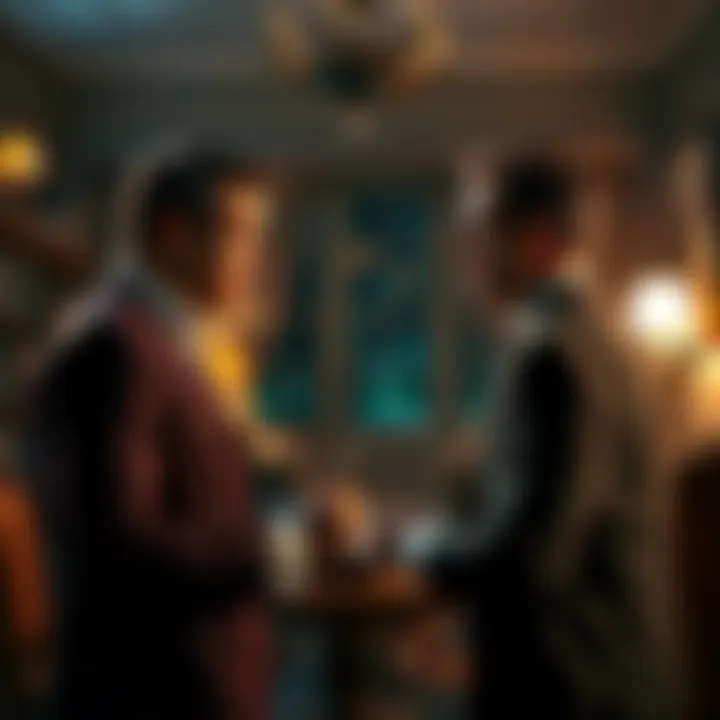Confessions of a Failed Writer | Disturbing Encounter in Literary Scene
Edited By
Nina Bard

A disillusioned writer finds himself in a confrontation at a lavish home, casting a harsh light on the nature of literary success and sacrifice. The shocking encounter raises questions about the value of talent and the harsh realities of the creative landscape.
A Tense Prolusion
The scene unfolds in a luxurious home adorned with Grecian columns and a questionable cherub fountain. A writer, haunted by his failures, confronts a successful author, resulting in violence. The clash reveals a deeper dialogue about the literary world, talent, and the often brutal realities of artistic ambition.
Breaking Down the Encounter
The protagonist arrives at the home seeking conversation but resorts to aggression when met with hostility.
"Who the heck are you?" the wealthy author demands, illustrating the dramatic tone of their meeting.
The emotional tension escalates as accusations fly.
"Your writing is the filth that should die and fester," states the intruder, striking a nerve as the discussion spirals into physical violence.
Themes Emerging from Comments
A recent resurgence of interest in the literary criticisms behind this story reflects three core themes:
Artistry vs. Commercialism: Comments suggest that genuine artistry is often overshadowed by commercial success.
The Fragility of Talent: Many indicate that real talent is frequently unrecognized, leading to bitterness among aspiring writers.
Violence in Expression: Some argue that a drastic approach, as seen in the story, highlights frustrations in the creative process.
Insightful Quotes Impacting the Narrative
"Sometimes, it takes an extreme (or 3) to finally find your groove."
Another commenter noted, "This kind of raw confrontation is what makes literature alive."
Emotional Undertones
The atmosphere is a mix of shock and pity, with the intruder's actions reflecting years of pent-up frustration. Despite the violence, his speech conveys a longing for authenticity in a market saturated with mediocrity.
Key Takeaways
△ The encounter raises questions about the merit of commercial vs. artistic success.
▽ A stark portrayal of the violent lengths to which some individuals might go to express their frustrations.
※ "You are talented but heartless. Your voice doesn’t deserve to be heard." - A chilling statement that encapsulates the overall disdain between artists.
Culmination
As the dust settles on this dramatic exchange, one wonders: Can literary ambition justify such extreme behavior? In this landscape, the lines between frustration and art blur frighteningly, leaving audiences to ponder the real cost of creative success.
What Lies Ahead for Literary Aspirants
There’s a strong chance that incidents like this will spark renewed discussions about the role of authenticity in creative fields. Many experts estimate that budding writers might become more vocal about their frustrations, potentially leading to a greater divide between successful authors and those still searching for recognition. We can anticipate an increase in online forums where these ambitious voices gather to share their experiences. Themes of artistic integrity versus commercial viability will likely take center stage, pushing literary circles to reconsider the gatekeeping norms that currently define success in the industry.
Shadows of the Past: A Rare Parallel
Consider the fervent debates that arose during the advent of Jazz in the early 20th century. Much like today's writers grappling with societal expectations, jazz musicians faced scorn from traditionalists who deemed their art chaotic, lacking structure. This clash resulted in public confrontations that resembled the tension witnessed in the literary scene today. Just as many musicians fought fiercely for their craft in the face of criticism, aspiring writers may find themselves at a crossroads that echoes this historical struggle, fostering not just their art but also an unyielding spirit of rebellion against prevailing norms.
